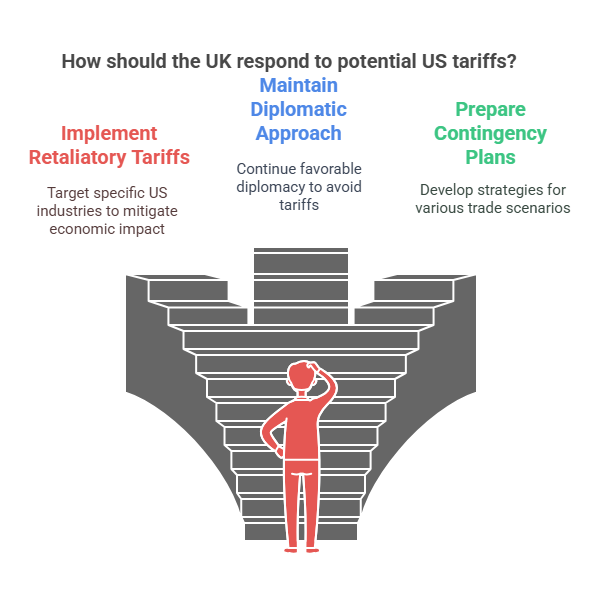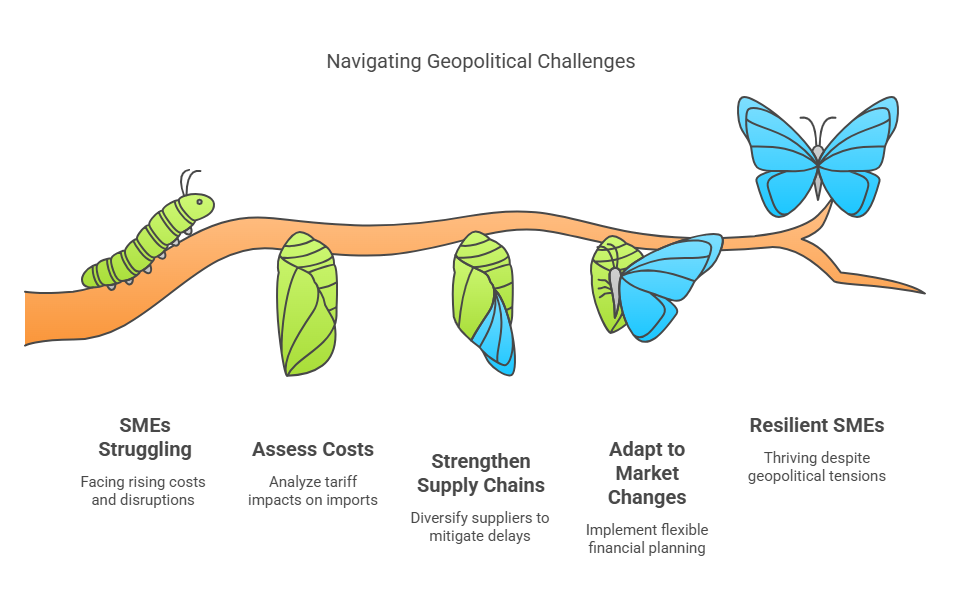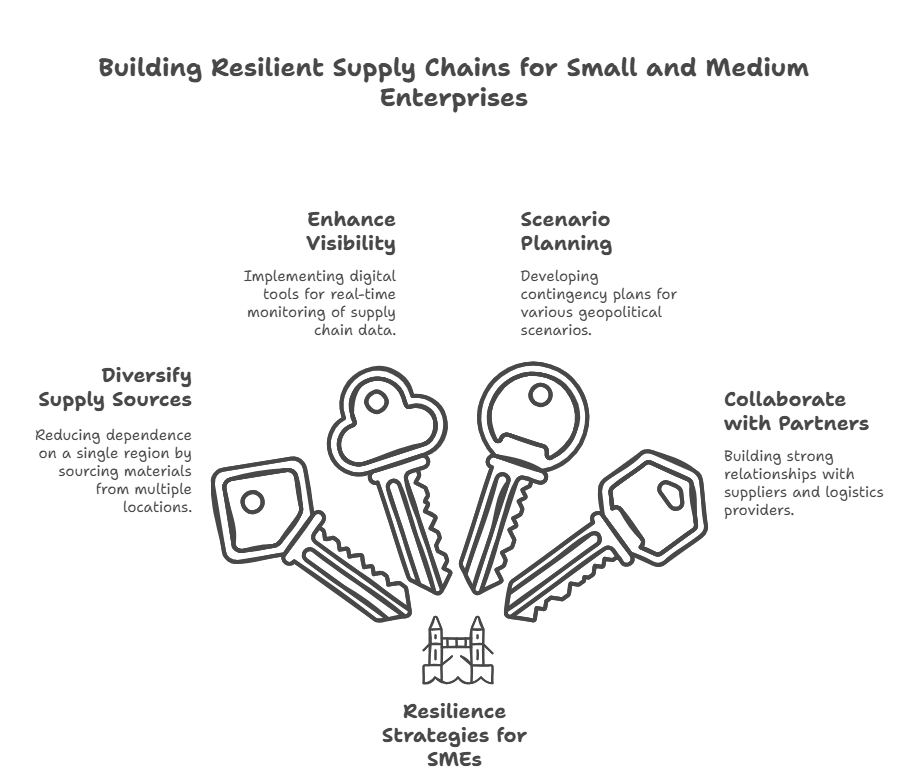
Trade Turbulence: Navigating Supply Chains Amid Geopolitical Strains
In today's interconnected world, geopolitical tensions significantly impact global supply chains, presenting unique challenges for small and medium-sized enterprises (SMEs) in the UK and EU. Recent developments underscore the importance of adaptability and strategic planning for businesses operating in this complex environment.
The Current Landscape
The imposition of tariffs by the United States on imports from Canada, Mexico, and China has raised concerns about a potential global trade war. These tariffs, including a 25% charge on Canadian and Mexican imports and a 10% charge on Chinese imports, have led to declines across major stock markets worldwide.

In response to these developments, the UK government is preparing contingency plans for retaliatory measures should the US impose tariffs on British goods. Potential UK tariffs could target specific American industries but are considered a last-resort measure. The situation underscores the delicate balance in maintaining trade relationships and avoiding a broader trade conflict.
While the UK might avoid direct tariffs due to favorable diplomacy between Prime Minister Keir Starmer and President Trump, the broader economic implications remain significant.

TImplications for SMEs
For SMEs in the UK and EU, these geopolitical tensions can lead to:

Strategies for Resilience
To navigate these challenges, SMEs should consider the following strategies:
In these uncertain times, partnering with experts can make a significant difference. EcomXpert specializes in streamlining supply chain strategies to optimize efficiency, reduce costs, and promote sustainable growth.
By leveraging data-driven solutions, EcomXpert helps SMEs tackle challenges such as rising costs, lack of visibility, operational bottlenecks, and sustainability pressures.
Our tailored approach ensures that businesses can navigate the complexities of today's geopolitical landscape while maintaining profitability and resilience.
In conclusion, while geopolitical tensions present substantial challenges, SMEs equipped with the right strategies and partnerships can not only withstand these disruptions but also thrive in a dynamic global market.
Write a comment